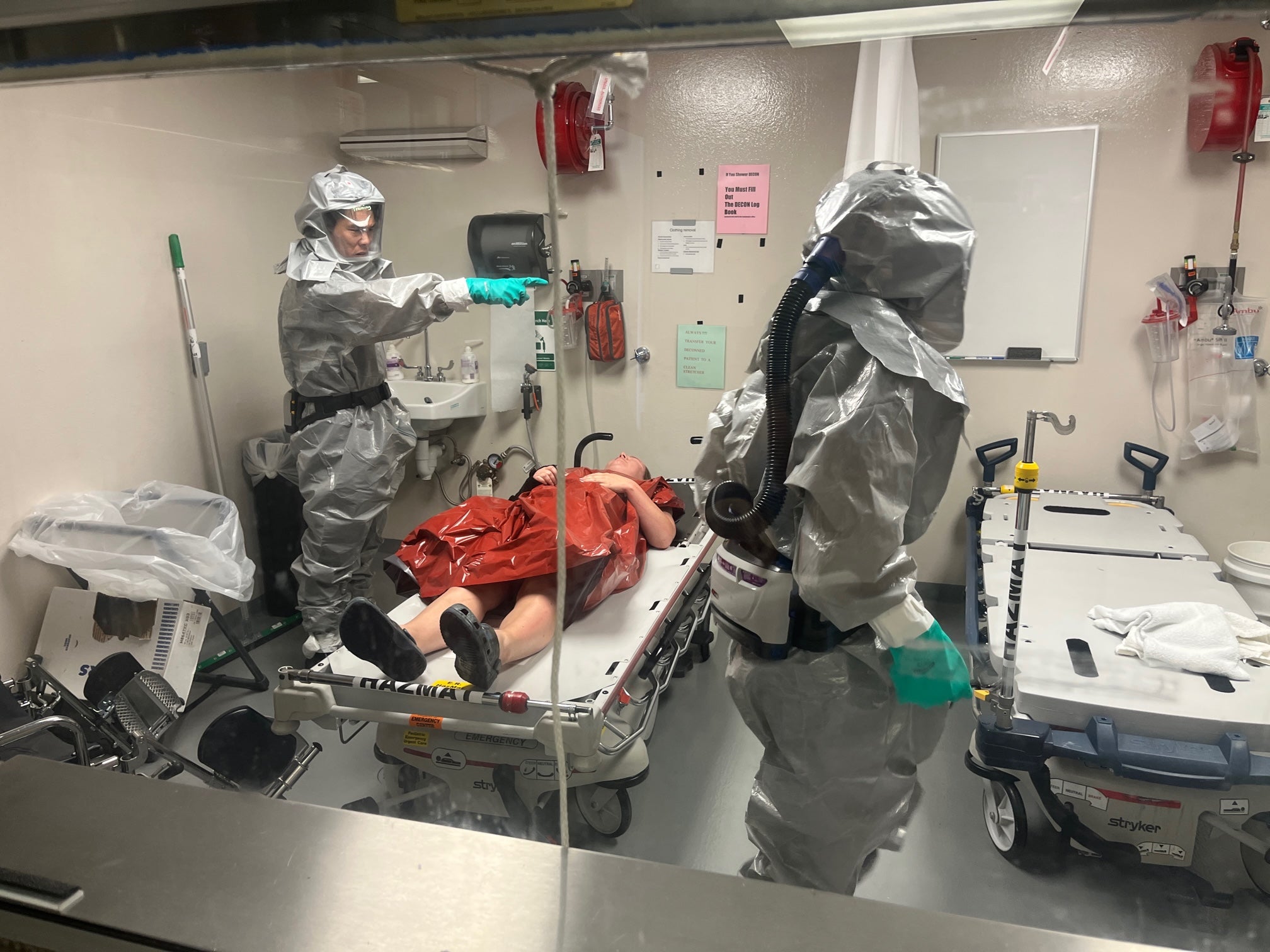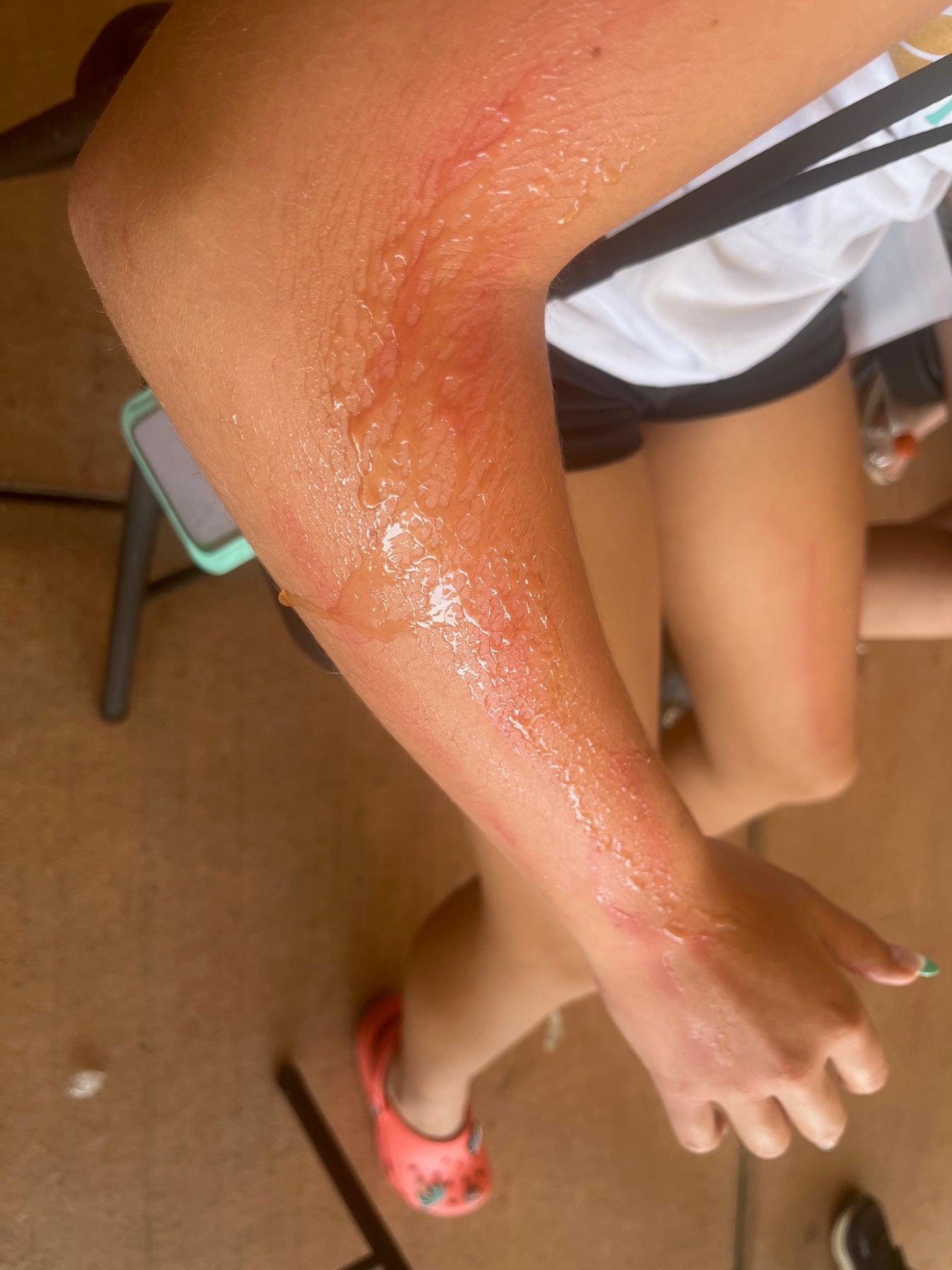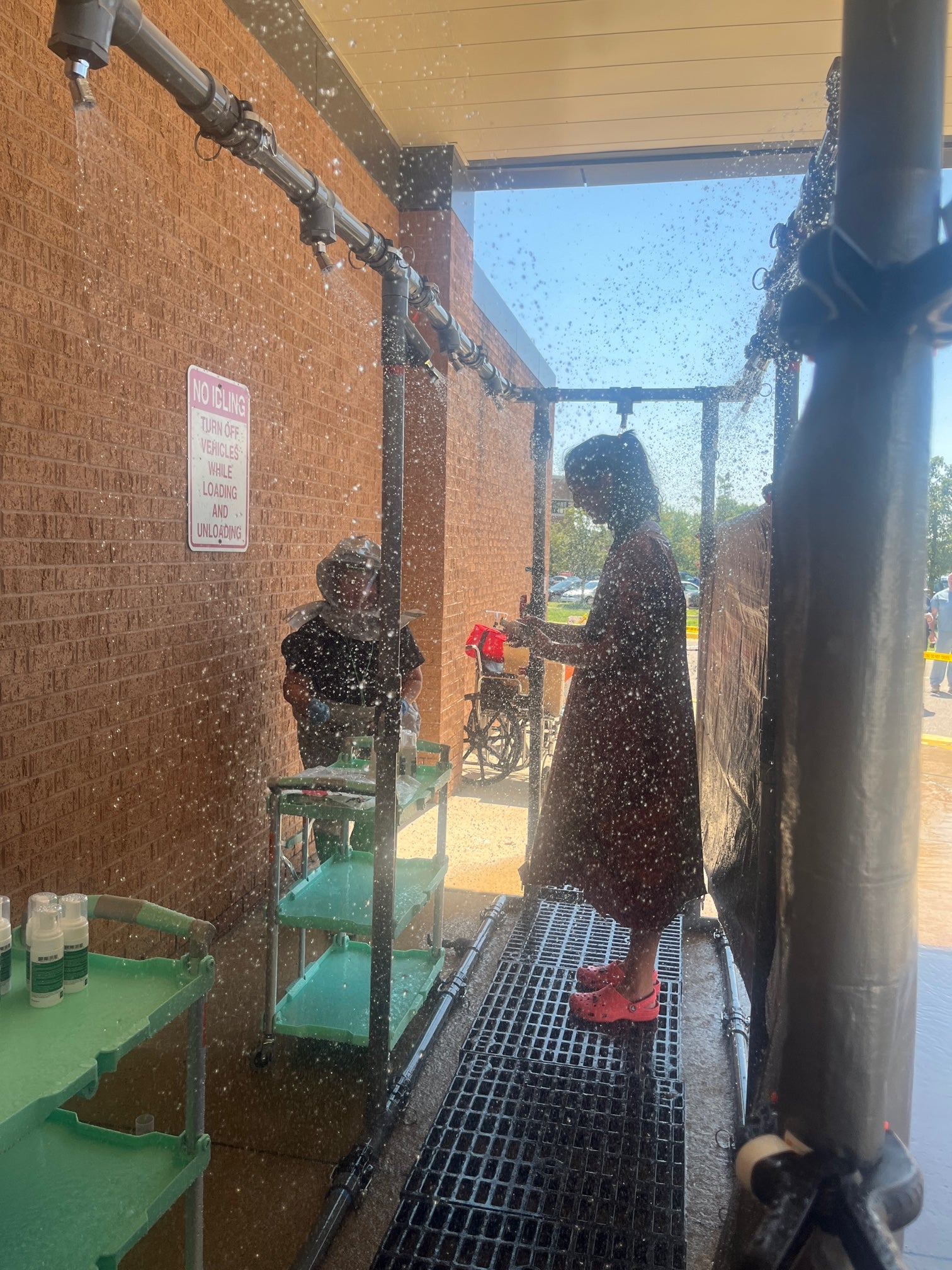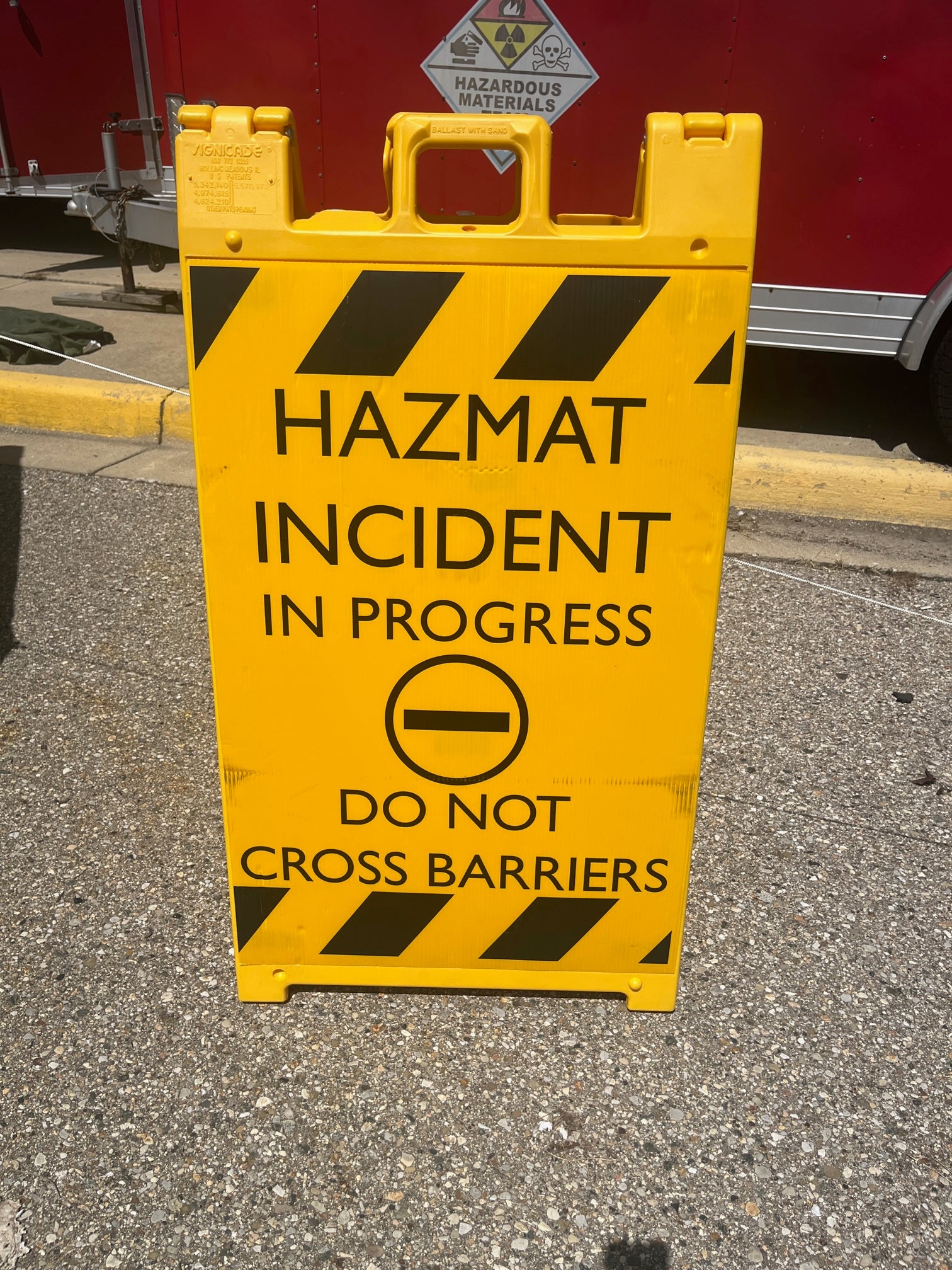Training for the Unexpected, How a Simulated Disaster Helps Prepare our Community
August 22, 2023
Categories: Community Health
If you are like most people, you sometimes come across stories on your phone or TV about mass casualty events occurring around the world …. but you never think about those sorts of events occurring here in your own community, or how your community would respond to such an event.


At Trinity Health Ann Arbor, it’s our job to think about these things. We train for the unexpected and we work as a team with our community partners to improve our protocols and response times should the unexpected ever hit home.
The scenario on August 16 involved a mock train derailment at a local railyard in Ypsilanti. Emergency teams responded as if the damaged rail cars had released hazardous materials, prompting the activation of hazmat teams, EMS, fire departments and our hospital.
Trinity Health Ann Arbor played a critical role in the exercise by receiving and decontaminating victims of the crash.
The hospital brought in student actors who were given specific scripts to follow for when they were met by our Emergency Department staff. Some victims self-presented to the hospital while others were transported by EMS. They had lipstick and maple syrup applied to their hands, faces and arms to simulate the look of chemical burns from hazardous materials.
brought in student actors who were given specific scripts to follow for when they were met by our Emergency Department staff. Some victims self-presented to the hospital while others were transported by EMS. They had lipstick and maple syrup applied to their hands, faces and arms to simulate the look of chemical burns from hazardous materials.
“Decontamination is the process of removing hazardous materials from a person's body,” said Bob Lovelace, the Emergency Hazmat coordinator at Trinity Health Ann Arbor. “It is an important step in preventing the spread of contamination and protecting the health of all patients inside the hospital, as well as our staff.”
All told, the hospital received 23 patients and decontaminated them, moving each patient from outside through decontamination, to an exam room, and then into the hospital Emergency Department for treatment.
“Exercises similar to what we practiced are needed to test and enhance our response capabilities,” said Kevin Moore, the hospital’s incident commander during the exercise. “While we did well and I commend our team, we are going to go back and discuss the things we can do better. We are going to identify gaps in our response, and we are going to be better prepared for tomorrow.”




